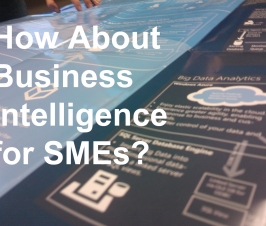
The Biggest Players In Artificial Intelligence Today
Knowledge engineering is a core part of AI research. Machines can often act and react like humans only if they have abundant information relating to the world. Artificial intelligence must have access to objects, categories, properties and relations between all of them to implement knowledge engineering. Some of the activities computers with artificial intelligence are designed for include:
Artificial intelligence uses algorithms to comprehend and react towards a human activity. For example, machine learning can be found in the way Google shares translations. Machine learning is also the technical term for how Apple’s Siri, Google Now, Microsoft’s Cortana and Amazon’s Alexa Voice Service deliver sports scores, and news to users.
While Cortana, Siri and others have pioneered achievements in the field of machine learning and artificial intelligence, they’re far from new. In fact, when we talk about artificial intelligence, it has deep roots and has been around for decades. However with the passage of time one thing has been clear that it is almost impossible to replicate human-like intelligence into machines but yet success has been witnessed.
Now since we have a brief idea about artificial intelligence and are well aware of the breakthroughs and innovations, let’s have a look at the artificial intelligence giants ruling the industry.
- Microsoft’s project Oxford (now cognitive services) aims to understand its users with emotion, face and speech application program interfaces (APIs).Microsoft ha recently announced Future Decoded that developers now have access to an emotion detection service that can assign a specific emotion to a person depending on their facial expression. This kind of facial recognition allows photos to be edited depending on the feelings expressed in them.
- Google: Back in 2014 Google bought artificial intelligence startup “DeepMind” for a huge $400 million acquisitions. Google focuses its AI investment on machine learning and has announced its machine learning system “TensorFlow” which will be available free of cost for everyone.
- Shell: While not a traditional ‘tech’ company, One of the biggest OMC’s “Shell” an Anglo Dutch Oil company all is set to launch a virtual assistant to answer online customers questions around the clock. This in return is going to save massive amount of time and is going to encourage the process of automation with reduced time cost.
- Apple has recently bought an artificial intelligence startup “Emotient”. It’s not completely clear what Apple’s plans are, however reports suggest that the acquisition will centre on facial recognition technology and customers reaction to ads.
- Facebook: According to The Next Web, Facebook is enabling blind people ‘see’ photos by using artificial intelligence to narrate them via its iOS app. With the help of neural networks, the Facebook app will generate a description for every photo e.g. ‘4 men smiling with champagne’.
In addition, Facebook has been using artificial intelligence to generate detailed maps illustrating population density and the access to internet across the globe. Due to this achievement, Facebook has been able to analyze 20 countries and 21.6 million square kilometres amounting to 350TB of data.
Facebook is also reported to be creating deep learning AI which aims to find out what matters to Facebook users. Facebook is definitely not new to the AI game. In 2010 it introduced facial recognition technology that could identify people in posted photos.
- IBM: IBM aims to use computers to extract meaningful information from photos, videos, text and speech. IBM have teamed up with graphics processor Nvidia, which reportedly provides Watson with a response rate that is 1.7 times faster than before. IBM is also in the process of developing a teaching assistant application that will plan lessons based on approved material.
- Salesforce: In April 2016, Salesforce acquired MetaMind, an AI startup specialising in deep learning. Salesforce CEO Richard Socher stated in a blogpost:“With MetaMind and Salesforce coming together, we’ll be able to offer customers real AI solutions with breakthrough capabilities that further automate and personalise customer support, marketing automation, and many other business processes.” Previously, MetaMind had developed a unique system that runs on a short-term memory to answer questions that are in natural language. For example, when given a large piece of text, a MetaMind system should be able to answer questions like ‘what is the overall sentiment?’
Brought to you by the RobustTechHouse team (Singapore based app development company). If you like our articles, please also check out our Facebook page.













